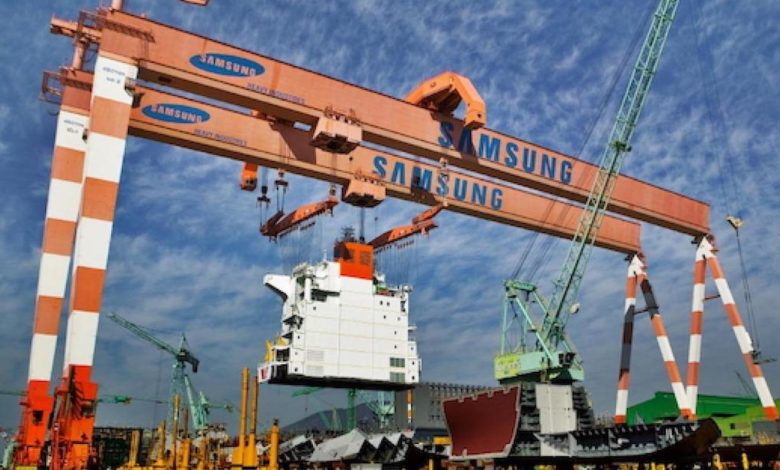
South Korean shipbuilder Samsung Heavy Industries (SHI) has developed a design for a new liquefied CO2 carrier. Class society DNV has awarded approval in principle (AiP) for the design, which incorporates customised large cargo tanks (pressurized IMO Type-C) and a reliable cargo handling system with what is said to be a highly efficient reliquefication technology.
The AIP, presented at the Gastech 2022 Exhibition in Milan, confirms that DNV has reviewed SHI’s design against the requirements of the IGC code and DNV guidelines applicable to CO2 carriers.
The ship has optimised cargo space and ship performance by utilising customised bi-lobe cargo tanks. It also features a re-liquefaction system that condenses vaporised and compressed CO2 by a refrigeration process. Once expanded, the CO2 is cooled and returned to the liquefied CO2 tanks, DNV explained.
“This AiP award demonstrates SHI’s readiness for the new LCO2 shipping market that is coming from global decarbonisation demands,” said Young Kyu Ahn, vice president and SHI’s head of shipbuilding sales engineering.
Several players in Asia have moved to develop their versions of liquefied CO2 carriers. In a separate ceremony at Gastech, SHI’s shipbuilding rival Hyundai Heavy Industries (HHI) was awarded design approval by Lloyd’s Register for the development of what is said to be the world’s first 40,000 cu m liquefied CO2 carrier. HHI is also involved in a project to develop a 74,000 cu m vessel, the largest by capacity, in collaboration with compatriot owner Hyundai Glovis and class society ABS.
Meanwhile, at Gastech, Japan’s Mitsui OSK Lines and Mitsubishi Shipbuilding have showcased their concept design of a 50,000 cu m class vessel. The concept study was completed in November last year and has now received an AiP from DNV.
“Carbon capture, utilisation and storage (CCUS) is gaining traction around the world as a technological solution that helps reduce the impact of CO2 emissions. Maritime transport can play an essential role in building up an efficient CCUS value chain, which is expected to lead to increasing demand for specialised LCO2 carriers going forward,” said Vidar Dolonen, regional manager DNV Maritime Korea & Japan.
